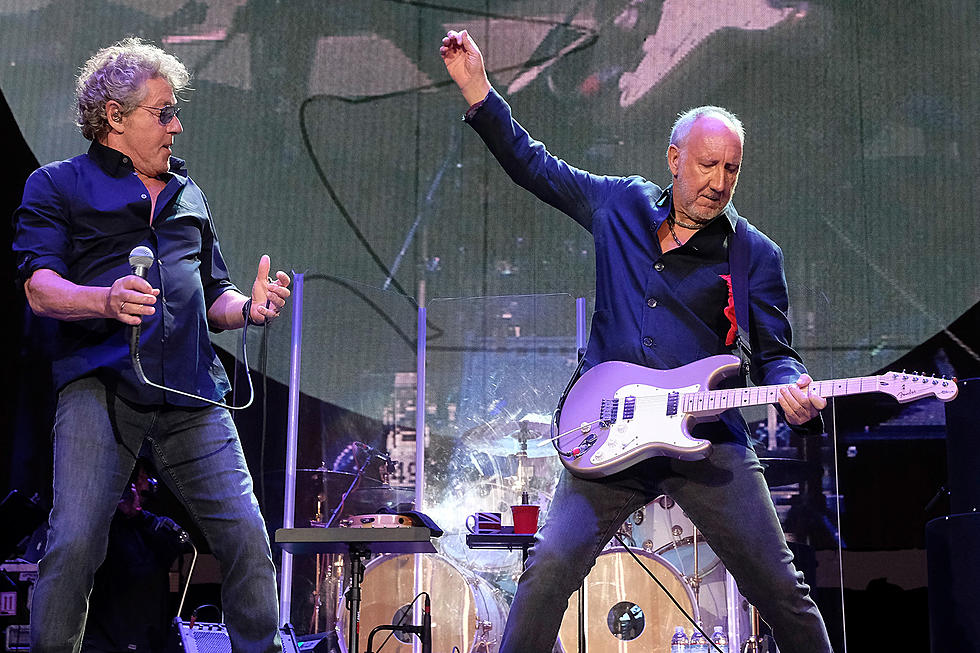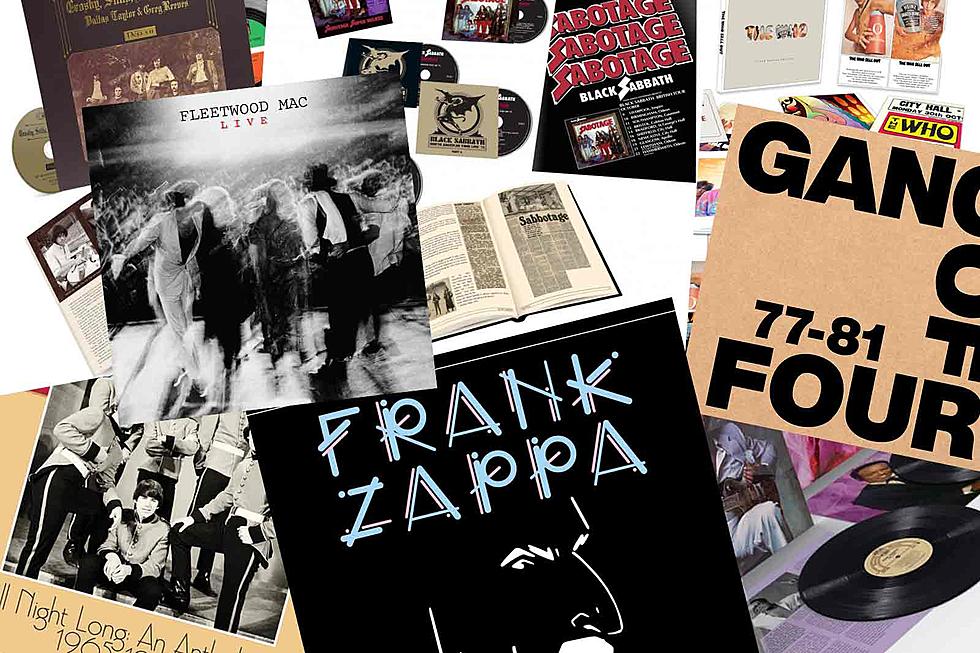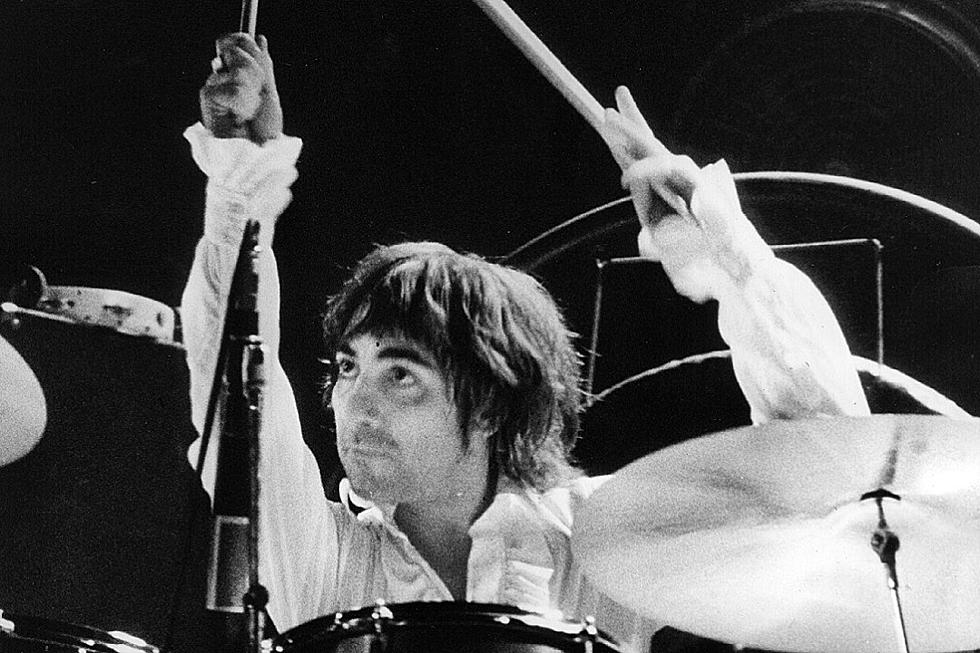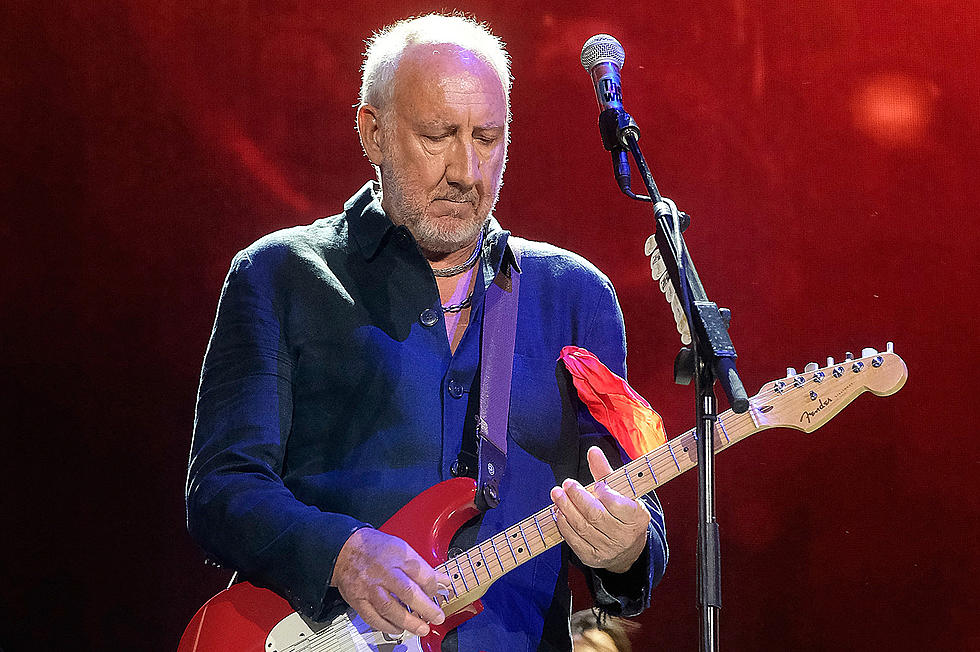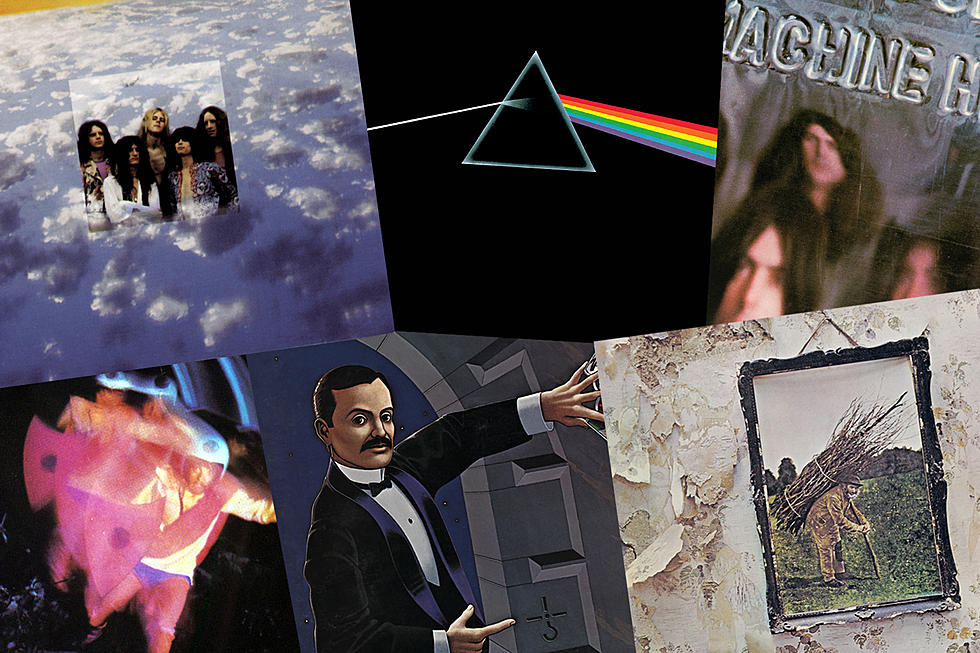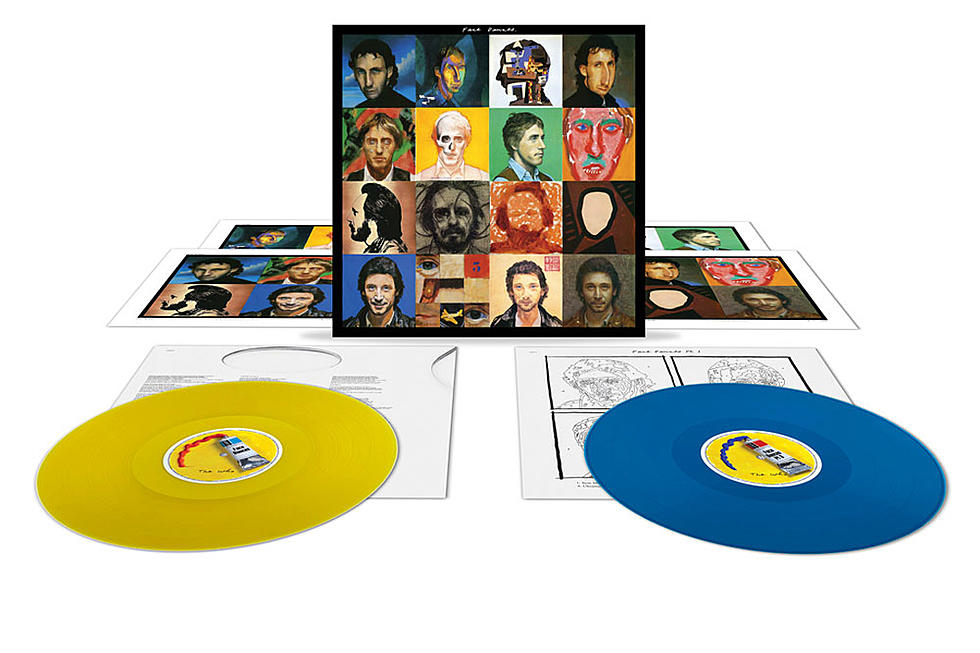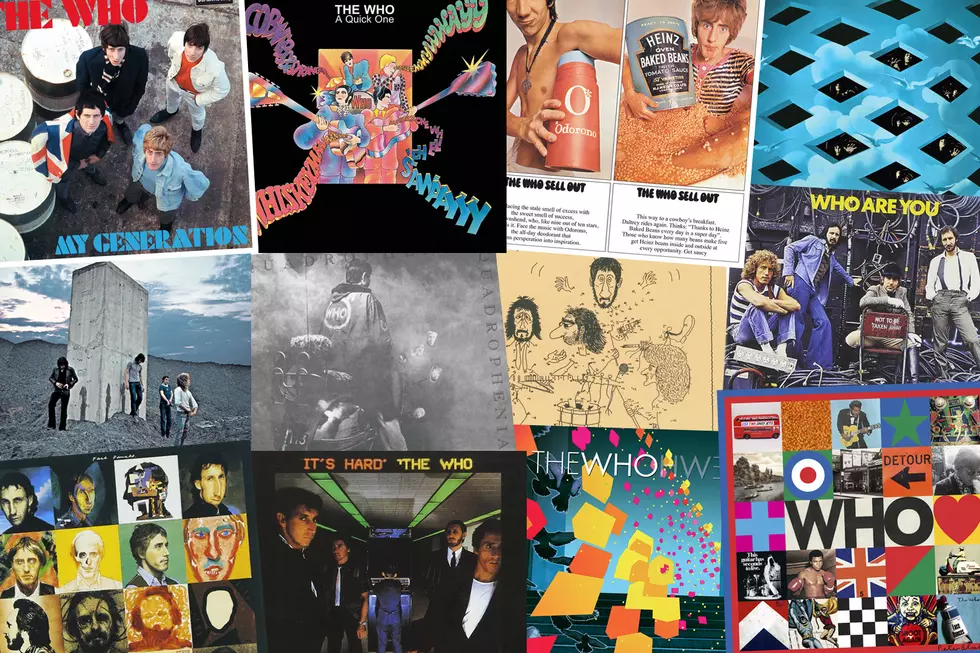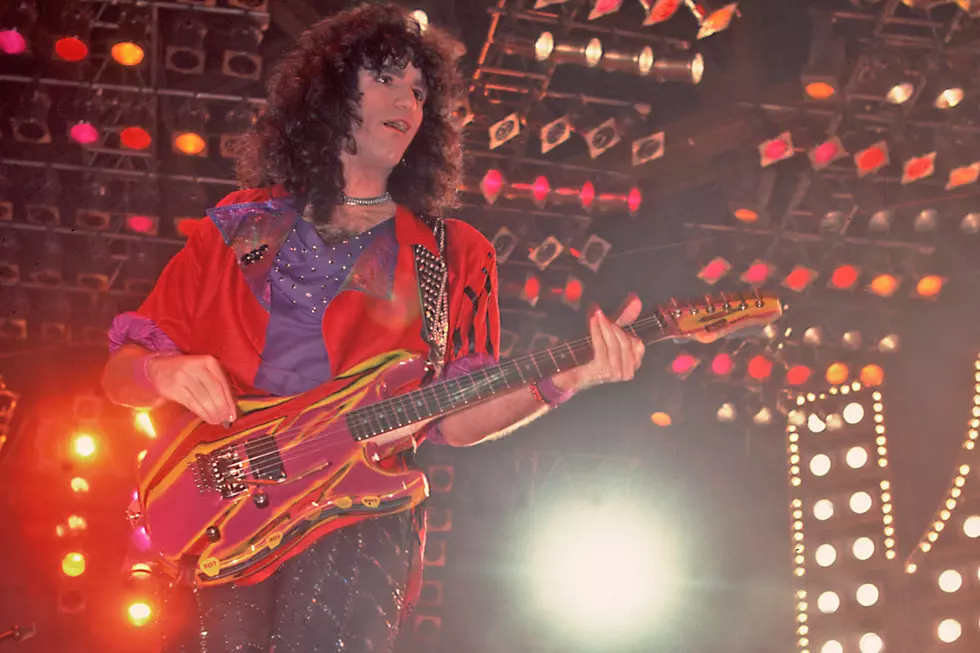
Simon Townshend Discusses ‘Looking Out, Looking in’ Solo Album + Touring With The Who
It's easy to say that guitarist Simon Townshend has spent his whole career making music in the shadows of his brother, Pete Townshend of the Who. Talking with Townshend though, it’s clear that having a famous brother hasn't hindered him one iota with what he’s sought to achieve through his own musical path of songwriting. Simon’s output has taken influence naturally from watching what Pete was doing with the Who, but also, like any other developing creative spirit, he took influence from the music which was all around him.
Since the mid-'90s, Townshend has been a member of the Who, playing second guitar for the band, beginning with their ‘Quadrophenia’ tour in 1996. But he’s also maintained a vibrantly active solo career, recording frequently during his downtime from the group.
Townshend is in the middle of a productive streak, having completed three albums of material within the past two years. The middle album of the three, ‘Looking Out, Looking In,’ is a wonderfully diverse collection of songs that will be landing in stores in November.
We spoke with Simon to dig inside his rich musical history and the songs from his latest solo album, plus he also gave us a good look at what we can expect from the Who's ‘Quadrophenia and More’ tour, which kicked off on Nov. 1, in Sunrise, Fla.
Music runs deep in your family. Is that something that you had interest in from an early age? What was your starting point?
Oh, I don’t think there was anything else I was interested in. It was when I was about six, I was writing songs on one string on a guitar, that I had started to play properly. I got my dad to get me some lessons when I was about eight. Pete gave me my first guitar, which was built of two guitars that he’d smashed and he had put them together for me. I particularly wanted a Fender Strat neck and a Gibson body, which he did for me.
From there, I mean, it was in my house, but it wasn’t only Pete. Because I am quite a lot younger than Pete, [so] he wasn’t really in the house much when I was young. But my father was a fantastic jazz musician and my mom was a singer and music was just in the house all of the time. We had a music room with a piano and all of my dad’s friends used to come over and jam and it was just a very musical upbringing. I don’t think really there was any other place for me to go. Something just put a guitar in my hand as soon as I could pick one up, really.
From a songwriting standpoint, when did it start to feel like you were writing real songs, as opposed to songs that were just songs you were writing as a kid?
Well, I always used to take everything that I did very seriously. Even the songs that I wrote on the one string were important to me. I did a session recording of some of my songs with Pete -- he took me into his home studio and we cut a couple of my songs there and I always used to think they were very important.
Obviously, I think when I got my first record contract with my group On the Air, that was a time that I felt like I had something that could actually make some money. When you realize people are being paid around you, to work with you, that’s when you probably realize that it’s something that is important and is something that has some weight to it. Because if you’re employing people and you’re giving people work, then you’re doing something good, aren’t you?
Oh, absolutely. From an influence standpoint, what sort of musical influences were driving that early songwriting?
When I really got into music [in my] early teens, that was ‘72 [or] ‘73. Obviously, when I was nine, I was listening to ‘Tommy’ because that was the Who’s new album. [So] I was obviously hearing a lot of Who music, but there was so much out there. Music was coming at you fast and furious and there was so much good stuff. I just remember loving everything that I heard.
I used to love the singer-songwriters to Hendrix playing guitar and [also] Bob Marley. Bob Marley blew me away [with] his music. I think I just loved music and it doesn't have to be a particular genre, it [just] has to be good music. If it’s good, it appeals to me. And what a time to be growing up, during that period!
I ask that, because I love the sounds on this album that you got with these songs and I hear so many different potential influences coming into those songs. Listening to 'Stay,' I hear almost a Peter Frampton-like tone to the sound and the songwriting. Was he an influence at all for you when you were coming up?
Absolutely! I had ‘Frampton Comes Alive’ like everybody else. We all had that record [and it had] killer songs. That’s what it’s always been about for me. I can play guitar, but I’m a constant musician. Obviously, over the years, it’s something you develop, isn’t it? But I never sat down and tried to study guitar to be a guitarist, I see myself as an artist, not a musician, if you like. They’re very different. A musician studies scales and knows the technical side of it all, but I’m more into writing words and creating chords and melody and harmony to build a song. This is what it’s all about for me. I think it shows in the record. It’s quite clear what I’m into. I don’t go out to impress people with musicianship.
Do you approach these projects as albums or do you go song-by-song?
Song-by-song. It’s interesting, because you do get into a thing, don’t you? You do get into a place for recording a record and I still try and think of them as records, as an entire journey or product, because I like to see it have a start, a middle and an end. Today’s music industry is sort of cherry picking [one song at a time] but I’m still living that dream of having two sides to a record with a track one and a track five and a track one and a track five on the other side, [creating] a journey. It’s a tough one. Nowadays, you just cram all of your best songs at the front of the CD, don’t you?
Yeah, that can be the approach, for sure. But at the same time, I think one of the best songs on this new CD is the last song, with ‘Make It.’
Yeah, that’s right, ‘Make It’ is a good one, isn’t it? And ‘Making Waves’ [also towards the end of the album] is another really strong song. But that’s it, I was trying to keep it to be a journey, to have a story and not just put all of the good ones at the front. I wanted people to just put their headphones on and listen to the CD right through. That’s the idea, to keep people’s interests.
You handled the string arrangements on that one and you also produced this album. How early did you get into the recording and arranging side of the business?
Well, I always used to record my own demos, but I never trusted myself in terms of making sonic decisions. That was something that only really came to me in the last couple of years. I feel like I started to believe in myself and I could actually say that this actually sounds good and that was a transition -- I don’t know where that came from. I just sort of started to believe that I didn’t need someone else’s ears.
I think having had a few experiences where you’re working with people that are supposed to be so good at what they do and then you come away and you think that, this doesn’t have, it may sound big, it may sound massive, but it doesn't have [the] character [that I wanted]. I can’t even describe it.
The vocal thing, I know that I recorded all of my vocals over the last few years just through an [Shure] SM58 mic, which is a stage microphone. I’ve heard recently that Bono does the same thing. I don’t know what it is, but sometimes, recording with these big Neumann microphones that you can hear every breath and every nuance of the tone, it doesn’t help -- it doesn’t make it any better.
It just makes it bigger in terms of audio bandwidth, but it’s not about that, it’s about the performance and the contact and the energy that’s recorded ultimately and the vibe. Maybe I just suddenly made some decisions myself where I said, “This is what I want it to sound like. I don’t want it to sound like that anymore.” I don’t want somebody else telling me what I should or shouldn’t do -- let me be who I am and then see if they like me or if they like it.
Making those decisions, suddenly people started to say, “This sounds great, I love this,” and I realized that that is the key -- just be yourself and put some character down. People like character and they like to listen to music and feel that there is something different about it. That’s what I think I got on these CDs.
You got to work with your son Ben, who plays drums on this album. It must be cool getting a chance to collaborate with him in this way.
Playing with Ben is great, because he’s got an empathy playing with me that I don’t really get, well, I must say that I’ve just recorded some new stuff with Mark Brzezicki, who used to be in a band called Big Country and he plays with me in my band. Years ago, we had a band together [On the Air] and there’s an empathy there as well.
You know, I think it’s something that just comes with time or having that spiritual family connection. I have that with Ben, where we just understand each other. Pete has it with me, we understand each other. I think that working with Ben, it was a natural thing for me to do. I wanted drums that were playing the songs, instead of a drummer showing off what he can do. Drummers can be so ... you know, I don’t think Keith Moon was like that with the Who.
I think Keith Moon actually played the drums in a way that he actually thought was right for the songs. I thought this through, because he played a lot, a lot for the music, but it was always right. It always fit perfectly. I think that some drummers just try and do too much. They try and fill every beat and they try to show off what they can do and it’s the same with other musicians. Musicians sometimes, I hate them, because they just want to show off what they’re capable of when really, a song is about a whole group of people putting across good music.
At age nine, you’re contributing background vocals for the ‘Tommy’ album. That album is obviously a classic now. Did you have a sense of what an epic album that would become at the time that it was being recorded?
Yeah, I did. It’s funny, isn't it? I was nine years old and I heard ‘Pinball Wizard’ and I just thought “this is incredible.” I appreciated the sound and I can remember loving the sound of the guitars and the voices, most of all. Yeah, I did think it was going to be big, but it didn't take long before Pete had earned a million quid and it was high up in the charts. I did have a sense of it and I don’t know why, but I remember thinking how right it was and how perfect it was. Maybe I hadn't had that feeling before?
At nine years old, was it strange to see something like that developing and trying to comprehend, “What does this mean and where is it going?”
Well, my only involvement in the actual development of it was in the studio singing the high vocal parts on ‘Smash the Mirror.’ I don’t think I had an idea or a clue what was going on then. To me, if you take ‘Smash the Mirror’ as an individual song, it’s not really an important song in terms of Pete’s body of work, but it’s obviously important to ‘Tommy,’ the whole thing. But for me, the song that just stood out, was ‘Pinball Wizard.’
When I heard that, this was a totally unique [song], the structured sound of the guitars and everything had a perfection quality about it. I think the production is awesome for the time as well. I don’t know if people really appreciate how brilliant a job they did in the studio back then, with that one. I think really, it was just neat when I actually heard it on the radio. I can’t remember where I was, but I remember I was in a room somewhere listening and I was thinking, “God, I hope this is the Who, I hope this is my brother,” that is what I remember thinking. Because it just sounded incredible and I loved it and I wasn’t sure who it was, to be honest.
At that point, I don’t think we had been given a copy of the actual finished record anyway. Or if we had, I hadn’t listened to it. I’m a nine-year old kid, I was into music and I was learning to play guitar, but I’m still a young guy, sort of finding my own feet, really. When I heard ‘Pinball Wizard,’ I think that was a turning point in my life, actually.
You had the chance to revisit that album when you toured with Roger Daltrey last year. What was that like? How do you think the material has grown over the years?
I really enjoyed doing that tour but we kept it very true to the original. It wasn’t really updated at all, it was almost true to the original 1969 production. We had this guy [Frank Simes] doing musical direction who was very, very keen to keep it exactly like the record. Roger’s U.S. band did that tour with Roger and I.
And [with that] what we’re doing is we aren’t bringing in the characters of Zak Starkey, Pino Palladino and myself, [where, as the Who, with Roger and Pete onstage] we’re going to be more liable to ad-lib and more liable to change things around a little bit. Pete can’t be told what to play - you can’t say to Pete “you have to do this every night” - it just doesn’t work like that. What is on those records is a one-off performance. Things are different every time he plays a song.
So I think with ‘Tommy,’ the tour was literally a tribute to the record and it was a joy to play. I loved playing and learning all of those parts, especially all of the fast acoustic stuff in the ‘Overture’ was just wonderful stuff for me to learn. I learned a lot doing that and figuring all of those parts out and playing them live and showing the people that I could actually do all of that stuff, that was great for me. But I don’t think it can be taken further forward or progressed without Pete’s involvement and the freedom that he would bring to it. Because when it’s not set to stage with a musical director, it’s almost like a tribute to itself.
You played ‘Quadrophenia’ previously with the Who in the late ‘90s. As the band prepares to begin rehearsals for the ‘Quadrophenia and More’ tour, what’s been the thought and discussion as far as how you’re going to approach the album this time around?
It’s going to be a little bit different. I mean, I don’t know what I should give away here. There are some fantastic ideas involving John Entwistle and Keith Moon, using live footage from years ago. It sounds so exciting, the visual aspect of it. I think that Pete’s going to be playing a bit more electric guitar on this tour whereas on the last tour, he played a lot of acoustic guitar. I think he’s going to be playing a bit more electric, which is good, because I think that people, although they love to watch me play, they want to see Pete play.
He’s a great electric guitar player and that’s the ticket that they’re buying, so that’s what they want to see. I think that on the organizational side, we’ve got the same musical director that did the ‘Tommy’ tour and things like the vocals, I think will be really, really well organized. Whereas when it was just Pete, Roger, John Entwistle, me, Zak and Rabbit [John Bundrick], the keyboard player at the time, going in and just sort of talking it through and just putting parts together. This [tour will take the approach of] this is what we’re going to be doing and giving us parts.
It will, not score it out as such, but everyone will be given a clear idea of what is required of them, to support the original piece. So I think it will be a little better vocally onstage on this tour, a bit stronger, vocally. It’s going to be a great tour. It’s going to be wonderful, I’m sure.
The last time you toured this record, John Entwistle was still in the band. How have you seen the dynamic change in his absence?
Well, Pino’s a very unique player, taking his place. He’s not trying to emulate John, he’s a unique force in himself. He has his own style and his own approach to playing bass and I think that was the right thing to do. I think trying to replace John [would have been the wrong move]. On [Roger’s] ‘Tommy’ tour, we had someone in who played every note that John played on the original album. It was great -- they got the same strings that he used and the same amp and they copied the sound and it was a true emulation of what was on the album.
But in the Who, Pino is Pino and Pete brought him in because he respects Pino for having his own sound and his own approach and that’s what we want. We want unique individuals. John was irreplaceable, really, but Pino’s done a great job stepping up to the plate and bringing his identity to it and it does work. He’s again, another guy that Pete’s been working with for years, that he has an empathy with. That again comes down to this thing that we don’t have to say too much, just the right thing happens.
I want to wrap up with a few things here. Going back to you being a kid, you’ve said that you used to watch the Who onstage and think that Pete was going to die. Can you explain that?
[Laughs] Well yeah, I really did. There was smoke and things being smashed up and when I was very young, I really did think that things were going wrong! There were times when Keith was throwing drums and you think that this could hurt somebody. And with Roger’s microphone swinging around and Pete’s guitar going through the amplifiers, you don’t see people around the back of the amplifiers holding them up, while smoke is coming out and stuff. You think there’s going to be an explosion, that’s what kids think, isn’t it? That’s where I was at the time. I always used to dread the smashing up of the gear bit.
Roger’s swinging of the microphone bit, I always saw that and thought that I would never stand behind that or anywhere near that!
Well, I got hit. When I did the ‘94 tour with Roger playing his own hits tour, I got hit by that microphone and he just said “don’t you ever stand so close onstage!” I learned my lesson that night. That was about the second or third show in and I realized that you’ve got to stand clear!
With Pete recently releasing his book, how much did he share about that process when he was putting it together? Did he look for your advice at all as far when it came to family material he was perhaps unsure about including?
No, apart from photos, [which] he came to everyone in the family for contributions and ideas for photos. That was pretty much it. The rest of it has been a long, long wait, really, seeing how it would come out. I’ve read about five chapters so far. I’m so strapped for time at this minute. I’m looking forward to getting on a plane and I’ll finish it off. It’s insightful stuff. There’s things about the family that I didn’t even know to be honest.
Do you have a good Keith Moon story?
Yeah, he didn’t like me beating him at backgammon. [Laughs] I think I was about 15 or 16 years and he got into backgammon and he was really pissed off when I beat him. I had never played before and he played all of the time. It was just the luck of the dice. Other than that, he was a great guy. He was a genuinely kind guy and generous and a really nice bloke and I think that people just saw the animal side of him onstage and that was just basically the guy that sort of came out when he had a drink or when he was partying. But he was quite quiet [most of the time] really.
More From KLUB Tejano 106.9
